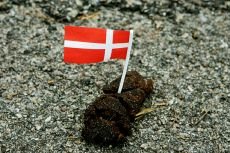
Introduction
These are portable electronic devices that help when it comes to communication; helps access to voice, data and video conferencing form of communication.
The RVDataSat 840 is a new satellite device that is an automatic rv satellite Internet antenna designed for consumers. These device features are:
- Easy to install.
- A dish antenna of 85 meters.
- Optimal performance.
- Award winning iDirect Evolution X5 satellite modem.
- Works by the touch of a button which.
RV Owners
The need to maintain a reliable Internet connection by traveling owners of weekend or full-time RV'rs
Government Agencies: This agency sole responsibility being safety since the country and its people heavy rely on agencies such as the military, police, or firefighters. Mobile satellite and mobile command centers are specially designed to operate on rough terrain and when disaster strikes, since they are connected to the main databases and information center.
Race Teams Support Personnel: The support team is always on the move to help the racers in case of emergencies or any other communication requirements.
Insurance: Since this sole intuition purpose is to compensate for specified loss, damage, illness, or death in return for payment of a premium. mobile satellite internet devices helps such institutions set up mobile centers to provide prompt claims services
Banking Institutions: Banking services such as deposits or withdrawals tends to be in high demand, and mobile branches provide clients with their banking needs in undeveloped areas, disaster-stricken areas or during social events.
Medical Teams: Mobile health clinics deploy in areas without hospitals, and for this matter this device provides connections to hospital computer network. Accessing medical analysis/data upload, patients’ records, and performing other basic functions.
Broadcast journalism: Given the nature of their daily coverage work such as competitions, filming, news events, among other various activities, their work is not set up a specific location. The broadcast of video, voice or data might be set up in an area where there no signal and this reason a reliable satellite Internet uplink connection is a requirement.
When it comes to disaster management/ mitigation mobile satellite, provide communications voice, data, and video to the unreachable area. Forest fires, earthquakes, hurricanes, tornadoes, biological, floods, aircraft incidents, or radio logical such are the type of communication breakdowns that can interfere with normal signal making it hard for emergency provide help.
The mobile satellite devices communications capability and access to outside information and resources without delay saves lives, eases communication trouble in times of catastrophic disasters, helps in emergencies providing the necessary signal for information access.
Contact Mobil Satellite Technologies to see what state-of-the-art solutions are available to help with any situation, in any place, to get an Internet connection.
 humans like cats and dogs are
better for you than e.g. fish.
humans like cats and dogs are
better for you than e.g. fish. Danish taxes are said to be the highest in the world, ruining the country's competitiveness.
Danish taxes are said to be the highest in the world, ruining the country's competitiveness.